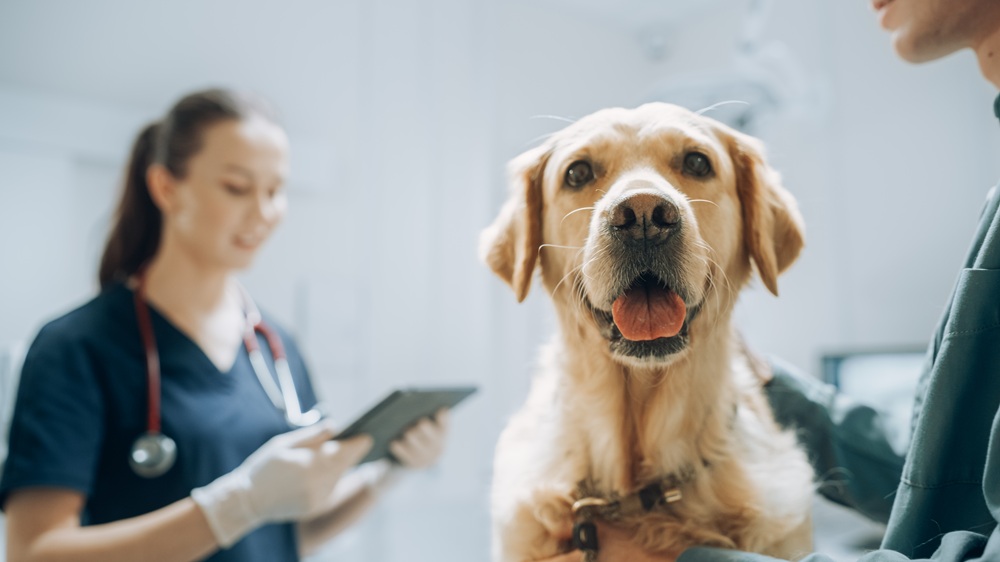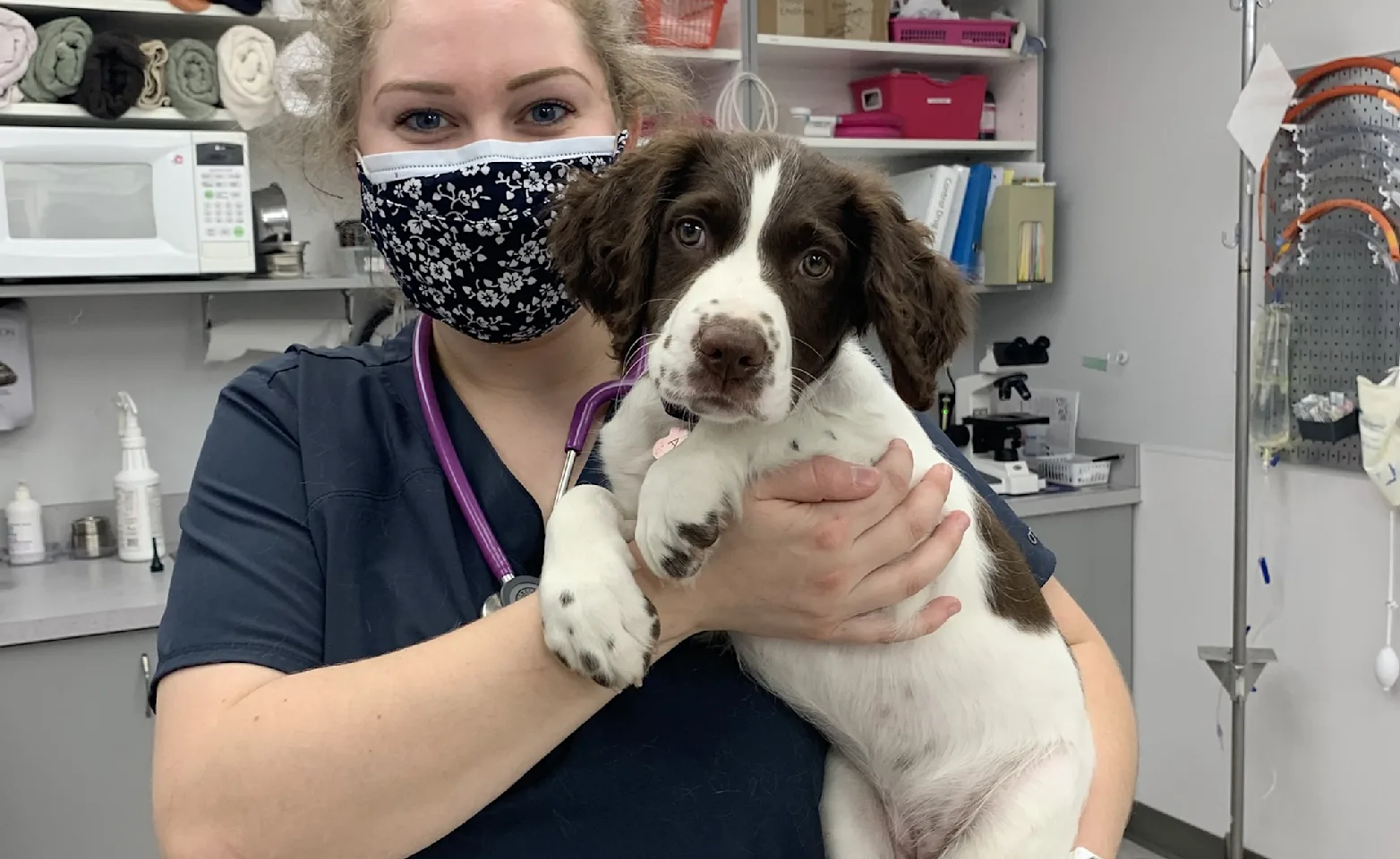Just How a Veterinary Specialty Hospital Can Cure Your Pet's Ailments With Advanced Techniques
Veterinary specialty hospitals play a crucial role in addressing complicated health and wellness issues in pet dogs. They use innovative techniques and innovations that improve diagnosis and therapy. With accessibility to specialized solutions, pet dog owners can discover customized solutions for their animals' conditions. This elevates important concerns about the particular techniques used and the benefits they provide. Understanding these elements can notably influence an animal's recuperation journey.
Recognizing the Duty of Veterinary Specialty Hospitals
Main care veterinarians provide vital solutions for pet health, veterinary specialty hospitals play a crucial function in attending to complex medical conditions that call for sophisticated diagnostics and therapy. These facilities are equipped with specialized modern technology and experienced experts who focus on details locations of veterinary medication, such as oncology, cardiology, and neurology.
Veterinary specialty hospitals assist in a joint technique, often working in conjunction with a pet's primary veterinarian to produce detailed care strategies. They offer access to advanced imaging strategies, such as MRI and CT scans, which are not normally offered in basic facilities. In addition, these hospitals provide intensive care devices for seriously ill pets, guaranteeing round-the-clock surveillance and support.
Specialized Solutions Provided by Veterinary Specialists
Veterinary professionals provide vital services that enhance family pet healthcare, especially via innovative analysis imaging techniques. These tools allow exact analyses of complicated medical conditions, bring about a lot more efficient targeted therapy plans. By incorporating these specialized services, veterinary hospitals can greatly enhance individual end results and general well-being.
Advanced Diagnostic Imaging
Advanced analysis imaging plays an important role in modern veterinary medicine, making it possible for specialists to acquire in-depth insights into a pet's health. Techniques such as X-rays, ultrasound, calculated tomography (CT), and magnetic resonance imaging (MRI) permit vets to imagine internal frameworks without invasive treatments - Learn More. These innovative imaging methods aid in diagnosing a range of conditions, from fractures and tumors to organ irregularities. By providing clear images, they boost the accuracy of analyses, which is important for efficient treatment planning. In addition, specialized vet radiologists translate these pictures, ensuring that refined problems are not forgotten. Eventually, advanced diagnostic imaging contributes in providing comprehensive care, as it enables for early detection and treatment in a pet's clinical concerns

Targeted Treatment Strategies
Targeted treatment strategies are essential for addressing the particular health needs of pet dogs, ensuring that each animal obtains customized treatment tailored to its one-of-a-kind problem. Veterinary experts develop these plans based upon detailed analyses, consisting of sophisticated diagnostic imaging and lab examinations. By concentrating on the individual family pet's medical diagnosis, way of life, age, and type, specialists can suggest efficient therapies, ranging from medicine adjustments to medical treatments. These plans likewise integrate follow-up treatment and keeping an eye on to track the pet's development and make essential changes. This method promotes perfect end results and enhances the total high quality of life for animals facing complicated health challenges. Inevitably, targeted therapy plans stand for a commitment to providing the highest possible standard of vet treatment.
Advanced Diagnostic Techniques for Accurate Diagnoses
As pet dogs face increasingly complex health and wellness obstacles, the assimilation of innovative analysis strategies has come to be essential for attaining precise diagnoses. Veterinary specialty hospitals use cutting edge imaging modern technologies, such as MRI and CT checks, to picture interior structures with impressive clarity. These methods allow veterinarians to determine irregularities that might not show up through typical methods.
Along with imaging, advanced lab examinations, consisting of genetic and biomarker analyses, provide vital understandings right into underlying problems. These examinations allow vets to discover conditions at earlier phases, helping with prompt intervention. In addition, the usage of endoscopy permits direct visualization of interior body organs, assisting in the diagnosis of gastrointestinal and respiratory issues.
Cutting-edge Treatment Options for Facility Problems
Cutting-edge therapy options for complex conditions in pets have become an important focus within vet specialty hospitals. Making use of advanced diagnostic devices, these facilities improve their capacity to identify concerns accurately and customize proper treatments. Veterinary. In addition, the application of minimally intrusive treatments and advanced recovery techniques uses pet dogs a better opportunity at recuperation with lowered pain
Advanced Diagnostic Tools
While the landscape of vet medication continues to develop, innovative analysis devices have arised as crucial possessions for resolving intricate conditions in pet dogs. These innovative modern technologies, consisting of electronic imaging, ultrasound, and molecular diagnostics, permit vets to acquire exact information concerning a pet dog's health standing quickly. High-resolution imaging methods can disclose elaborate details of internal frameworks, allowing exact analyses of conditions or injuries. In addition, hereditary screening gives insights into genetic problems, directing customized therapy plans. By leveraging these innovative diagnostic devices, vet specialty hospitals can enhance their capability to identify conditions that may have formerly gone unnoticed. Inevitably, these developments add to boosted end results and improve the general top quality of treatment supplied to beloved linked here pets.
Minimally Intrusive Treatments
Developments in veterinary medicine have paved the method for minimally intrusive procedures, which supply new treatment options for intricate conditions in pets. These cutting-edge techniques, such as laparoscopy and endoscopy, permit veterinarians to perform surgical procedures with smaller lacerations, decreasing injury and recovery time. By utilizing specialized electronic cameras and instruments, veterinarians can identify and deal with concerns like growths, stomach conditions, and joint troubles with precision - Learn More. This technique minimizes pain and results in quicker healing, enabling family pets to return to their regular activities quicker. Furthermore, minimally intrusive procedures typically lead to much less scarring and a reduced threat of difficulties. As veterinary specialty hospitals adopt these advanced techniques, pet dog owners can really feel extra confident in their pet dogs' treatment and total health
Advanced Rehab Techniques
As veterinary medicine evolves, progressed recovery methods are ending up being important for taking care of complicated conditions in pets. These approaches encompass a series of innovative therapy alternatives, consisting of hydrotherapy, laser treatment, and physical therapy. Hydrotherapy makes use of water resistance to improve wheelchair and reinforce muscular tissues, useful for family pets recouping from surgery or injury. Laser therapy advertises healing by decreasing inflammation and pain, fostering quicker healing times. Physical treatment employs targeted exercises to enhance strength and flexibility, customized to every animal's specific needs - Vet services. Additionally, modalities like acupuncture and chiropractic care changes can additionally support rehabilitation by alleviating pain and improving general well-being. Veterinary specialty hospitals are significantly incorporating these strategies, ensuring family pets get thorough care that addresses both psychological and physical healing, ultimately boosting their lifestyle
The Importance of a Multidisciplinary Technique
A multidisciplinary approach in vet care substantially boosts the therapy end results for pets, as it incorporates competence from different specialties to attend to complex health and wellness problems. This collective technique entails vets, professionals, specialists, and support staff functioning together to create comprehensive therapy plans tailored to every pet's distinct needs. By integrating expertise from areas such as surgery, inner medicine, oncology, and recovery, veterinarians can recognize hidden problems that might or else go unnoticed.
Additionally, this technique promotes interaction amongst group participants, making certain that all elements of a pet dog's health and wellness are thought about. As an example, an animal recouping from surgery may take advantage of input from both a recovery and a surgeon expert, resulting in an extra effective healing procedure. Ultimately, a multidisciplinary method not only improves the high quality of care yet also enhances the total health of pets, supplying them with the very best possibility for an effective recuperation and long-term health.
Cutting-Edge Innovation in Veterinary Medicine

Telemedicine has additionally become a crucial source, making it possible for vets to speak with animal owners remotely, consequently assisting in timely treatments. Furthermore, the combination of expert system in analyzing clinical information contributes to extra reliable therapy strategies customized to specific needs. Sophisticated lab devices enables for quick blood evaluation and microorganism discovery, cultivating punctual medical responses. As veterinary specialty hospitals remain to incorporate these innovations, they not just boost the quality of treatment but additionally considerably boost the general health of family pets.
Success Stories: Real-Life Examples of Pet Dog Recuperation
Various heartwarming success stories show the exceptional recuperations of animals treated at vet specialty hospitals. One such instance included Bella, a Golden Retriever identified with a severe orthopedic concern. After advanced surgical intervention and recovery, Bella was not only able to walk once more yet also to run happily in the park, much to her proprietors' joy.
An additional motivating story features Max, a pet cat with persistent kidney disease. Through specialized dietary monitoring and cutting-edge treatments, Max's condition stabilized, enabling him to reclaim his power and hunger. His owners were overjoyed to see him return to his spirited self.
Luna, a Dachshund that endured a spinal injury, underwent innovative treatments, leading to a miraculous healing. These tales highlight the competence and empathy located in veterinary specialty hospitals, showcasing their capacity to recover wellness and happiness to cherished animals and their family members.
Frequently Asked Questions
What Should I Anticipate Throughout My Pet dog's Specialty Examination?
During a specialty consultation, animal owners can expect a detailed examination, thorough medical background conversations, diagnostic tests, and tailored therapy alternatives. The vet expert will supply insights and recommendations for the animal's particular health needs.
Just How Can I Locate a Veterinary Specialty Hospital Near Me?
To locate a veterinary specialty hospital nearby, one can utilize on the internet online search engine, check regional directories, or look for referrals from key vets. Additionally, animal proprietor online forums can provide valuable understandings and experiences about nearby centers.
Are Specialty Services Covered by Animal Insurance Coverage?
Specialty solutions may be covered by animal insurance policy, however insurance coverage differs by policy. Owners ought to thoroughly review their insurance strategy details and consult their service provider to comprehend the degree of coverage for specialty vet services.
Exactly How Lengthy Will My Family pet's Therapy Take?

The period of an animal's therapy can vary markedly, typically ranging from a few days to a number of weeks. Aspects influencing this timeline include the particular problem, therapy type, and the family pet's total health and wellness and feedback.
What Are the Costs Related To Specialty Veterinary Care?
The costs associated with specialty vet treatment can differ widely, generally ranging from hundreds to countless bucks. Variables affecting these costs include the intricacy of the condition, required therapies, and analysis procedures required for effective care.
Veterinary specialty hospitals play an important role in dealing with complex health and wellness issues in pet dogs. Key care veterinarians offer vital solutions for pet health, vet specialty hospitals play an essential function in dealing with intricate clinical problems that call for innovative diagnostics and therapy. Veterinary specialty hospitals facilitate a collective technique, typically functioning in conjunction with a pet dog's key vet to create comprehensive treatment plans. Innovative treatment options for complicated conditions in family pets have arised as an important emphasis within vet specialty hospitals. A multidisciplinary approach in veterinary care significantly boosts the treatment outcomes for family pets, as it incorporates knowledge from different specializeds to deal with intricate wellness concerns.